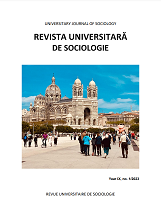THE NATIONAL COMMISSION FOR THE PROMOTION OF BILINGUALISM AND MULTICULTURALISM AND THE CHALLENGES OF MANAGING THE ANGLOPHONE LINGUISTIC MINORITY IN CAMEROON
THE NATIONAL COMMISSION FOR THE PROMOTION OF BILINGUALISM AND MULTICULTURALISM AND THE CHALLENGES OF MANAGING THE ANGLOPHONE LINGUISTIC MINORITY IN CAMEROON
Author(s): Darus Sidoine KEUNANGSubject(s): Foreign languages learning, Sociolinguistics, Politics and Identity
Published by: Ediktura Beladi
Keywords: Cameroon; crisis; identity; minority; Commission for CNPBM;
Summary/Abstract: The socio-political and economic events that the post-independent has experienced in Cameroon are the consequence of a distinct colonial past. First as a protectorate under the German colonialist and successively as mandated and Trust territories under the British and French colonial authorities. The triad of colonial legacies and most importantly that of Britain and France fashioned the bilingual nature of contemporary Cameroon. It is worth noting that at independence, Cameroon was partitioned between Britain and France in 1916 and ruled as two different administrative entities by the colonial powers. It was only in October 1961 that both territories decided to reunite to form a bilingual country with each preserving its historical legacies. Upon the unification, the territory and Cameroonians from the British-governed part of partitioned Cameroon represented only 20% of the country’s territory and population, thus making them what has been conceptualized as the anglophone minority. However, the sociopolitical, and linguistic marginalization of the anglophone minority since 1961 laid the basis for latent politico-linguistic grievances that materialized into the current anglophone conflict in 2016. In a bit to resolve the anglophone conflict, the government of Cameroon created the National Commission for the Promotion of Bilingualism and Multiculturalism (CNPBM) in February 2018. The main argument sustained in this study is that the anglophone conflict is eminently a political problem and requires a political solution. This paper questions the nature and extent to which the CNPBM can contribute to the resolution of the anglophone conflict. Indeed, through a historical approach, this work questions the assessment of the management of linguistic minorities (Anglophones) in Cameroon and the issues and challenges facing this commission for the promotion of bilingualism. This paper suggests that an enabling political environment needs to be created in other to permit the CNPBM to effectively play its role.
Journal: Revista Universitară de Sociologie
- Issue Year: IX/2023
- Issue No: 1
- Page Range: 203-213
- Page Count: 11
- Language: English

